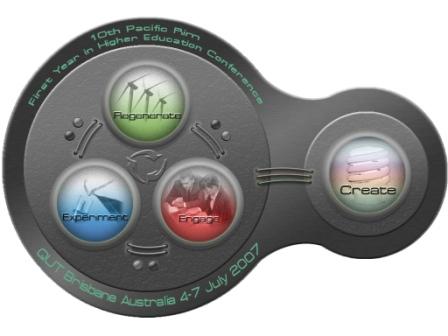| Site Home | Past Papers | Contacts |
|
 |
|
|
Ruth Pickford Keynote Synopsis Learner Empowerment and the First Year Experience Discussions relating to the first year experience are often littered with negative references to attrition, plagiarism, to dropping attendance and to the ‘problems’ of widening participation in higher education. This presentation refocuses positively on the individual student learning experience and highlights opportunities for more effective and efficient learning. The presentation will discuss practical steps we can take to design induction and first year programmes that will develop autonomous, reflective learners and empower both students and staff. There are huge pay-offs for us and for students if we equip them for independent learning at the beginning of their higher education experience. By doing so students will be able to exploit and act upon formative feedback and be more effective learners throughout their programmes. Knight and Yorke (2003) refer to our fostering of ‘learned dependence’ where the student does not seek to go beyond the boundaries set by the tutor. This dependence between students and tutors may well pose challenges to student learning as it is at odds with a desire to prepare students for lifelong learning and the need to allow students to learn how to learn independently. In the first few weeks of a programme we need to support students to move away from this model of learned dependence which they may have experienced prior to coming into higher education by designing tasks that encourage and credit students for experimenting and for failing. It is important that we always give students the option to go beyond minimal requirements and motivate them to do so. If we focus in the first weeks on developing self directed students able to work in differentiated, exciting and stimulating learning environments then we should be able to engage students more deeply in their learning throughout the length of their programme and beyond. The challenge facing academics looking to develop students as autonomous learners is how to embed skills for learning into the early stages of a programme. Our irreplaceable value as teachers is to be found in dialogue with students and it is particularly important in the first weeks of the student experience to design assessment, learning and teaching practices to support regular, and ideally individual, formative feedback with students. However, if we are to focus on facilitation of effective learning through formative feedback then we may need to re-engineer our entire approach to curriculum design, assessment and teaching practices. It is useful to invest time in getting to know our first year students and in ensuring that our students understand the ‘rules of the game’. We need to rethink our relationship with our students and look to new ways that we can work together and be more flexible in our approaches to assessment, teaching and learning. Once we have developed a relationship with our students it is easier to work in partnership with them, to identify how best to motivate them and to work on their individual learning needs. There is potentially much to be gained from developing a mutually supportive relationship between teachers and students and from considering the feasibility and desirability of passing more control to the individual student for their own learning, assessment and curriculum design. There are also advantages in developing students’ research skills at the earliest possible opportunity in a course to exploit the potential for teacher-learner collaboration through research and to improve the student learning experience.
This presentation looks at each of these steps and addresses the practicalities of developing the empowered learner.
|
|
|
FYHE 2013 |
Last updated: 01/03/2012| Site Administrator